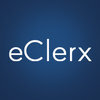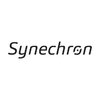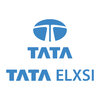
i
ITC Infotech
Filter interviews by
ITC Infotech Lead Consultant Interview Questions and Answers
23 Interview questions
The assets cycle involves accounting entries related to the acquisition, utilization, and disposal of assets. Depreciation key and area are used to calculate and allocate depreciation expenses.
Assets cycle involves acquiring, using, and disposing of assets.
Accounting entries include recording asset acquisition, depreciation, and disposal.
Depreciation key is used to determine the method and rate of depreciation for...
Delta Lake is an open-source storage layer that brings ACID transactions to Apache Spark and big data workloads.
Delta Lake provides ACID transactions, scalable metadata handling, and unifies streaming and batch data processing.
It ensures data integrity and reliability by providing features like schema enforcement and data versioning.
Delta Lake is compatible with Apache Spark and supports various data formats like ...
Delta lakes provide scalable, reliable, and performant storage for big data analytics.
Scalability: Delta lakes can handle large amounts of data and scale easily as data grows.
Reliability: Delta lakes ensure data integrity and consistency with ACID transactions.
Performance: Delta lakes optimize data access and query performance with indexing and caching.
Schema enforcement: Delta lakes enforce schema on write, ensur...
Z-Ordering is a method of arranging objects on a 2D plane based on their depth or priority.
Z-Ordering determines the order in which objects are drawn on a screen.
Objects with a higher Z-order value are drawn on top of objects with a lower Z-order value.
Z-Ordering is commonly used in computer graphics and user interface design.
For example, in a video game, characters may have different Z-order values to ensure they...
Glide ajax is a client-side scripting technology in ServiceNow used for asynchronous server communication.
Glide ajax is used to make asynchronous server calls without refreshing the entire page.
Syntax: new GlideAjax('script_include_name').getXMLAnswer(callbackFunction);
Example: var ga = new GlideAjax('MyScriptInclude'); ga.addParam('sysparm_name', 'myFunction'); ga.getXMLAnswer(myCallbackFunction);
Beanshell Processor allows customization of scenarios in data processing through scripting.
Beanshell is a lightweight scripting language that can be embedded in Java applications.
You can manipulate data in JMeter by using Beanshell scripts to customize requests and responses.
Example: Use Beanshell to extract a value from a response and store it in a variable for later use.
You can implement conditional logic in you...
GRM rule stands for Generalized Resource Management rule.
GRM rule is a principle used in project management to allocate resources efficiently.
It involves prioritizing tasks based on available resources and project goals.
The rule helps in optimizing resource utilization and improving project outcomes.
For example, if a project has limited budget and manpower, GRM rule would prioritize tasks that are critical to proj...
Deep copy rule ensures complete duplication of an object, including nested objects, preventing shared references.
A deep copy creates a new object and recursively copies all objects found in the original, unlike a shallow copy.
Example: In Python, using the 'copy' module, 'copy.deepcopy()' creates a deep copy of a list with nested lists.
Deep copies are essential in scenarios where modifications to the copy should no...
We use Jira for Scrum.
Jira is a popular tool for Agile project management
It allows for easy creation and management of Scrum boards
Jira also has features for sprint planning, backlog management, and reporting
Other tools like Trello and Asana can also be used for Scrum
Empirical process is a data-driven approach to problem-solving that involves continuous experimentation and observation.
Empirical process involves making observations, collecting data, and using that data to make decisions.
It is a continuous process that involves testing hypotheses and refining them based on the results.
Empirical process is commonly used in fields such as science, engineering, and business.
For exa...
ITC Infotech Lead Consultant Interview Experiences
36 interviews found
I appeared for an interview in May 2025, where I was asked the following questions.
- Q1. Software Testing life cycle
- Ans.
The Software Testing Life Cycle (STLC) outlines the phases of testing in software development to ensure quality and performance.
1. Requirement Analysis: Understanding testing requirements based on specifications.
2. Test Planning: Creating a test strategy and defining resources needed.
3. Test Case Design: Developing test cases and scenarios based on requirements.
4. Test Environment Setup: Preparing the environment where...
- Q2. Bug life cycle
I applied via Referral and was interviewed in May 2024. There was 1 interview round.
(7 Questions)
- Q1. Azure ad connect components
- Q2. Authentication protocol
- Q3. Metaverse explaination
- Q4. Application integration
- Q5. Scim provisioning
- Q6. Conditional access
- Q7. Privileged identity management
I applied via Approached by Company and was interviewed in May 2024. There were 3 interview rounds.
(2 Questions)
- Q1. Infrastructure Azure
- Q2. DevOps CI CD pipelines
(2 Questions)
- Q1. Powershell Scripting
- Q2. Infrastructure as code - VM and Automation
(2 Questions)
- Q1. Salary discussion
- Q2. Shift allowance and recommendations
I appeared for an interview in Mar 2025, where I was asked the following questions.
- Q1. Well you know anything about IT?
- Ans.
Yes, I have extensive knowledge in IT, covering various domains like software development, networking, and cybersecurity.
Software Development: Proficient in languages like Python and Java, with experience in building scalable applications.
Networking: Understanding of TCP/IP protocols, network security, and experience in configuring routers and switches.
Cybersecurity: Knowledge of best practices for securing systems, in...
- Q2. How will you consult a client?
- Ans.
I will engage clients through active listening, tailored solutions, and ongoing support to ensure their needs are met effectively.
Conduct thorough needs assessment: For example, use surveys or interviews to understand client challenges.
Develop customized strategies: Create a tailored plan that addresses specific client goals, such as improving operational efficiency.
Implement solutions collaboratively: Work alongside t...
I appeared for an interview in Dec 2024, where I was asked the following questions.
- Q1. What is your future goal
- Ans.
My future goal is to lead innovative projects that drive impactful change in the industry while mentoring the next generation of leaders.
Aim to develop and implement cutting-edge solutions that enhance operational efficiency, like adopting AI in project management.
Aspire to mentor junior consultants, sharing knowledge and fostering their growth, similar to how I was guided early in my career.
Seek to expand my expertise...
- Q2. Why should I hire you
- Ans.
I bring a unique blend of expertise, leadership, and a proven track record of delivering results in complex projects.
Extensive experience in leading cross-functional teams, demonstrated by successfully managing a $2M project that increased efficiency by 30%.
Strong analytical skills, evidenced by developing a data-driven strategy that improved client satisfaction scores by 25% within six months.
Proven ability to adapt t...
I applied via Referral and was interviewed in Dec 2023. There was 1 interview round.
(6 Questions)
- Q1. P2P Cycle with Setting and accounting entries
- Ans.
P2P cycle involves procurement of goods/services, approval, receipt, invoice processing, and payment.
P2P cycle starts with requisition for goods/services
Approval process follows to ensure compliance
Goods/services received and invoice processed for payment
Accounting entries include debit to expense account and credit to accounts payable
- Q2. O2C cycle with setting and accounting entries
- Ans.
The O2C cycle involves the process of receiving and fulfilling customer orders, invoicing, and receiving payment.
Order is received from customer
Order is processed and goods/services are delivered
Invoice is generated and sent to customer
Payment is received and recorded in accounts
- Q3. Manual BRS Process
- Q4. Auto BRS Process
- Q5. Bank Communication Management
- Q6. Assets Cycle with accounting entries and purpose of Dep Key & Area
- Ans.
The assets cycle involves accounting entries related to the acquisition, utilization, and disposal of assets. Depreciation key and area are used to calculate and allocate depreciation expenses.
Assets cycle involves acquiring, using, and disposing of assets.
Accounting entries include recording asset acquisition, depreciation, and disposal.
Depreciation key is used to determine the method and rate of depreciation for an a...
Interview Preparation Tips
(3 Questions)
- Q1. Explain about the Delta lake
- Ans.
Delta Lake is an open-source storage layer that brings ACID transactions to Apache Spark and big data workloads.
Delta Lake provides ACID transactions, scalable metadata handling, and unifies streaming and batch data processing.
It ensures data integrity and reliability by providing features like schema enforcement and data versioning.
Delta Lake is compatible with Apache Spark and supports various data formats like Parqu...
- Q2. What is Z-Ordering
- Ans.
Z-Ordering is a method of arranging objects on a 2D plane based on their depth or priority.
Z-Ordering determines the order in which objects are drawn on a screen.
Objects with a higher Z-order value are drawn on top of objects with a lower Z-order value.
Z-Ordering is commonly used in computer graphics and user interface design.
For example, in a video game, characters may have different Z-order values to ensure they appe...
- Q3. Benefits of Delta lakes
- Ans.
Delta lakes provide scalable, reliable, and performant storage for big data analytics.
Scalability: Delta lakes can handle large amounts of data and scale easily as data grows.
Reliability: Delta lakes ensure data integrity and consistency with ACID transactions.
Performance: Delta lakes optimize data access and query performance with indexing and caching.
Schema enforcement: Delta lakes enforce schema on write, ensuring d...
Skills evaluated in this interview
(3 Questions)
- Q1. Beanshell Processor coding skill to customize the scenario
- Ans.
Beanshell Processor allows customization of scenarios in data processing through scripting.
Beanshell is a lightweight scripting language that can be embedded in Java applications.
You can manipulate data in JMeter by using Beanshell scripts to customize requests and responses.
Example: Use Beanshell to extract a value from a response and store it in a variable for later use.
You can implement conditional logic in your scr...
- Q2. CI/CD, GIT, Basic SQL queries
- Q3. Cloud Platform knowledge
I appeared for an interview before Oct 2021.
(1 Question)
- Q1. Can you provide details about your previous project?
- Ans.
Implemented a CRM system for a large retail company to streamline customer interactions.
Led a team of developers to customize the CRM system based on client requirements
Integrated the CRM system with existing databases and software applications
Provided training and support to end users for smooth adoption of the new system
Write a Java code to find the first non-repeating character in the given string.
(1 Question)
- Q1. Expected salary
- Ans.
My expected salary is competitive based on my experience, skills, and the market rate for Lead Consultants.
I have researched the average salary range for Lead Consultants in this industry.
I am open to negotiation based on the overall compensation package offered.
I am looking for a salary that reflects my expertise and contributions to the team.
I am confident that my skills and experience warrant a competitive salary.
I ...
(2 Questions)
- Q1. Explain glide ajax and write the syntax
- Ans.
Glide ajax is a client-side scripting technology in ServiceNow used for asynchronous server communication.
Glide ajax is used to make asynchronous server calls without refreshing the entire page.
Syntax: new GlideAjax('script_include_name').getXMLAnswer(callbackFunction);
Example: var ga = new GlideAjax('MyScriptInclude'); ga.addParam('sysparm_name', 'myFunction'); ga.getXMLAnswer(myCallbackFunction);
- Q2. Explain the difference between
- Ans.
The difference between leadership and management lies in their focus and approach to achieving goals.
Leadership focuses on inspiring and motivating others to achieve a common goal, while management focuses on planning, organizing, and controlling resources to achieve specific objectives.
Leadership involves setting a vision and direction for a team, while management involves implementing strategies and processes to achi...
Skills evaluated in this interview
Top trending discussions






ITC Infotech Interview FAQs
Some of the top questions asked at the ITC Infotech Lead Consultant interview -
The duration of ITC Infotech Lead Consultant interview process can vary, but typically it takes about less than 2 weeks to complete.
Tell us how to improve this page.
ITC Infotech Interviews By Designations
- ITC Infotech Associate Information Technology Consultant Interview Questions
- ITC Infotech Lead Consultant Interview Questions
- ITC Infotech Associate Consultant Interview Questions
- ITC Infotech Software Developer Interview Questions
- ITC Infotech Associate IT Consultant 2 Interview Questions
- ITC Infotech IT Consultant Interview Questions
- ITC Infotech Software Engineer Interview Questions
- ITC Infotech Java Developer Interview Questions
- Show more
Interview Questions for Popular Designations
Overall Interview Experience Rating
based on 31 interview experiences
Difficulty level
Duration
Interview Questions from Similar Companies
ITC Infotech Lead Consultant Reviews and Ratings
based on 525 reviews
Rating in categories
|
Associate Information Technology Consultant
5.1k
salaries
| ₹4.3 L/yr - ₹14.4 L/yr |
|
Lead Consultant
4.6k
salaries
| ₹16.4 L/yr - ₹30.5 L/yr |
|
Associate Consultant
958
salaries
| ₹2.5 L/yr - ₹18.4 L/yr |
|
Software Engineer
517
salaries
| ₹5 L/yr - ₹12 L/yr |
|
Senior Software Engineer
383
salaries
| ₹12.4 L/yr - ₹21 L/yr |

TCS

Mphasis

L&T Technology Services

Coforge
- Home >
- Interviews >
- ITC Infotech Interview Questions














